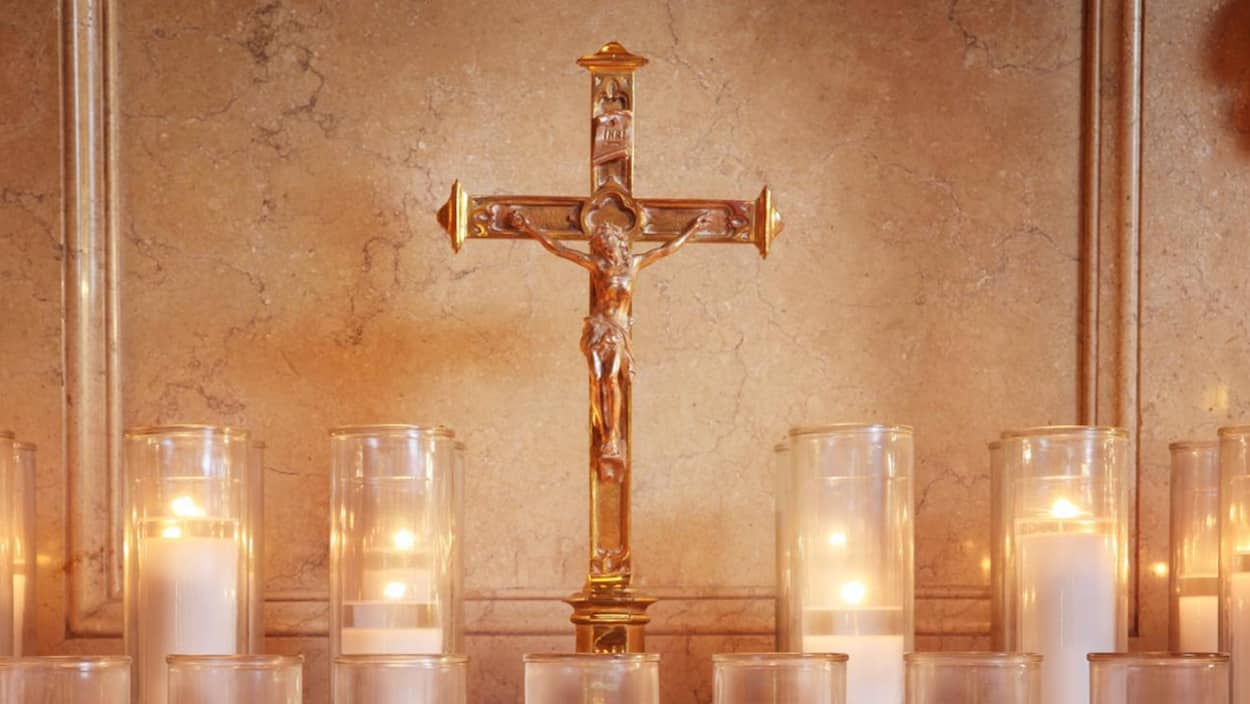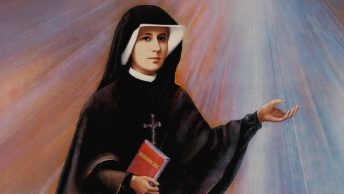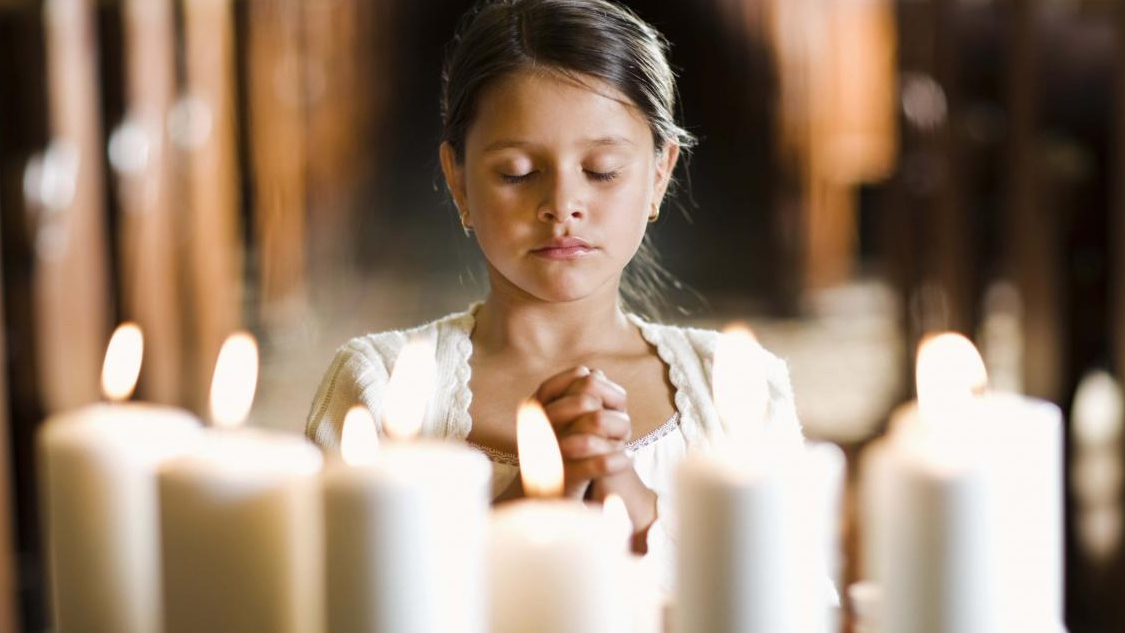The word “liturgy” refers to the work of someone on behalf of the people. In our case, it refers to our collective effort to be sustained by the Source of life in all components of our being, especially our mind, heart, body and soul. This work consists mainly of prayer as offered in God’s Word and expressed in God’s Word. Simply put: we as God’s people are truly praying individually or collectively as long as our praying is founded, inspired and guided by God’s Word. Outside of God’s Word there is no true prayer.
Think about it: God orders us to pray incessantly. The Holy Spirit prays in us so that we can pray correctly. Jesus teaches us how to pray. Jesus is present as we gather for our “public work” of praying and worshiping. All our official prayers as God’s people are made in the name of Jesus Christ our Lord.
As a test, let us pick any prayer by rote that we know and see how much it is in line with God’s Word to qualify as prayer. The “Our Father,” of course, is fully included in the Bible as it is Jesus himself who teaches it to us. But let us take the other most common prayer, the “Hail Mary.” If we are familiar with the Bible, we notice that the first half of it is taken verbatim from the infancy narrative in the Gospel of Luke. The second half reflects our humility as we acknowledge our sinfulness, hence, our need for powerful intercessors such as the Mother of God (cf. Luke 1:43) to sustain us continuously in our weakness now, and up to the time of our last breath so that we may belong always to the Lord (cf. Romans 14:8).
Using the passage from the Gospel of Mark (1:1-8) given us for this 2nd Sunday of Advent, we shall see how the Bible shapes our liturgical prayer. From the Old Testament we know that God provided for his people a leader (Moses), a destination (the Promised Land), guidance through his Word, a setting (the desert) and sustenance (manna, the bread from heaven). Beautiful as that was; it was simply a prefiguration of the breathtaking reality in which our God decreed to have us, his new chosen people, live and journey in the context of the New Testament.
The earthshaking change has to do with God’s decision to send his only Begotten Son in human flesh to be the Leader of his new chosen people. This event is so world-shattering that Jesus needs a precursor in the person of John the Baptist to prepare God’s people for its new Leader on their journey to the heavenly Promised Land. But also, and most importantly, Jesus needs a precursor to prepare the hearts of his people to accept him as nourishment of their minds and hearts with his words of life, and also as nourishment for their souls with his Body and Blood so that they may become truly divine, inseparable from their Leader.
What remains the same is the setting. We are to journey in the desert.
The desert is the setting that forces us to make a very existential choice: either we heed John’s call to repentance, own up to our frailty and, thus, we choose God as the Source of our life or we try to fend for ourselves with miserable results. Thus, on set days and times, we are assembled, i.e. we gather as Church to pray together with Jesus in our midst. The two official prayers of the Catholic Church are the Eucharistic Celebration and the Liturgy of the Hours.
Let me first dwell briefly on the Liturgy of the Hours. This is the time-tested, centuries-old prayer recited as a community of faith or as individuals united spiritually and mentally, into a community by the fact of engaging in the prayer that the Church, inspired by the Holy Spirit, has selected as her official way of giving praise, thanks, honor, glory to God and of interceding for the needs of her members through Christ the Lord.
The Liturgy of the Hours is made up strictly of Psalms, readings of excerpts from the Bible aided by commentaries written by illustrious saints, liturgical hymns inspired by God’s Word and prayers of intercession for the needs of the whole world. This prayer, also known as Breviary, fully fits the definition of prayer that I have given you many times before: prayer is awareness that our life unfolds, around the clock, under the watchful eyes of our heavenly Father and that our life is secure in his powerful yet gentle hands. Part of the Liturgy of the Hours is lived out in the morning, part at midday, in the evening and also at night before retiring.
The apex and summit of our liturgical prayer life is the Holy Mass (Eucharist). Jesus orders us to do this (Eucharist) in memory of him. Hence, the Church sets Sundays as the Lord’s Day, the Day of his victory over all our scariest enemies, death included as the obligatory day for doing Eucharist, for giving thanks.
We know from the Bible that in our praying, in our acts of worship, God demands the full engagement of all our faculties: mind, heart, body and soul, flesh and spirit, every single component that makes each one of us unique yet called to be one of the integral parts of the Body of Christ. This order from God is executed by enthusiastically and wholeheartedly participating in the dialogue with the presiding priest who physically represents Christ among us. The most important reply is the different “Amen” that we are expected to say aloud. With that word already familiar to us, we are affirming that we agree with the official prayers, that we believe wholeheartedly with what is professed.
Each Eucharistic celebration takes us quickly into the “desert” of our sins and errant ways and, through our owning up to our sins, it assures us an application of God’s mercy equal to the level of our sorrow. The opening prayer is called “Collect” because it officially collects all our individual prayers into one official prayer. We are, then, immersed into the reality of God’s actions in salvation history and fed Jesus Christ as the only One with words of life (cf. John 6:68). The most amazing aspect of Jesus conversing with us as God’s Word is that he adapts his words of life to fit our concrete situation and brings us the comfort and the light that we each need. Then, we offer our bodies in union with Christ to the Father to give him the thanksgiving, the honor and glory that is due him as our Lord and God.
For this to take place, to truly proclaim the Lord’s death, profess his resurrection until he comes in glory, we need to be fed the Lord’s Body and Blood so that we become truly one with him with the same desire to have our body “broken” in the service of our brothers and sisters and our blood “poured out” in attending to their needs. In the strength of that heavenly food we exit our assembly reenergized, ready to proclaim the Gospel with our life and to continue our mission of loving self-giving to others until our journey reaches the Promised Land of Heaven.








